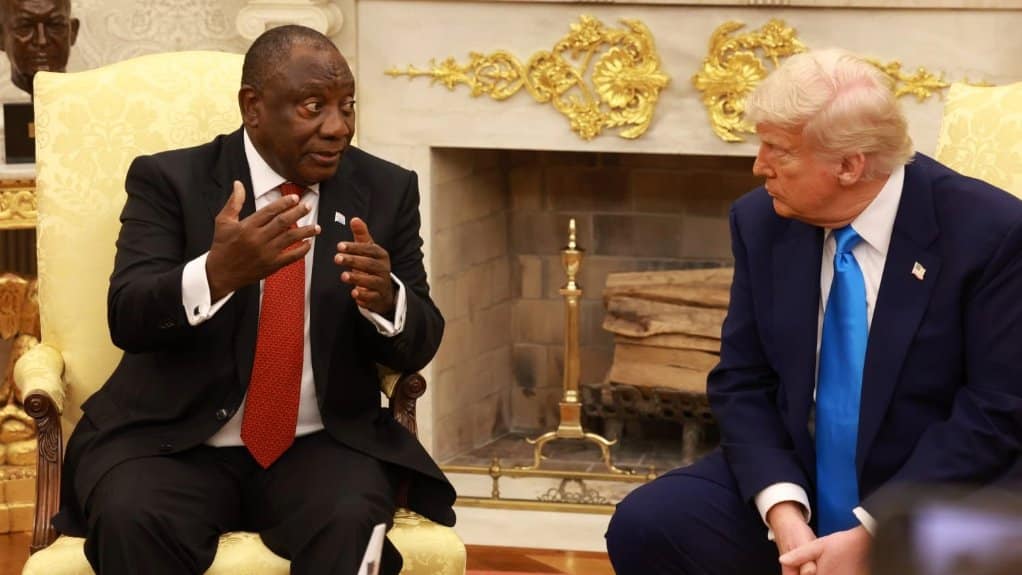President Cyril Ramaphosa says South Africa will continue with its diplomatic efforts towards a more balanced and mutually beneficial trade relationship with the US after having received a letter from President Donald Trump indicating that a 30% tariff will be imposed on South African goods from August 1.
In a July 7 letter, Trump said the 30% tariff had been implemented to address “long-term, and very persistent, trade deficits engendered by South Africa’s tariff, non-tariff, policies and trade barriers” that meant the relationship was “far from reciprocal”.
Similar letters were sent to several other countries and came despite recent calls from South Africa for a 90-day pause on the imposition of the reciprocal tariff announced by Trump on April 2 to be extended to allow time for a deal to be finalised, after South Africa submitted a proposed framework agreement to the US on May 20.
In the final paragraph of his letter, the US President indicated that adjustments could be considered to the tariff outlined, should South Africa “open your heretofore closed trading markets to the United States, and eliminate your tariff, non-tariff, policies and trade barriers”.
In his response, Ramaphosa welcomed the commitment by the US government indicating that the “30% tariff is subject to modification at the back of the conclusion of our negotiations with the United States”.
“South Africa will continue with its diplomatic efforts towards a more balanced and mutually beneficial trade relationship with the United States,” Ramaphosa noted, while adding that South Africa still awaited a “template” from the US in relation to its approach to sub-Saharan Africa on matters of trade.
South Africa became aware of the template at a meeting held on the sidelines of the US-Africa Summit on June 23 in Luanda, Angola, but had not been provided with details.
Therefore, Ramaphosa had instructed South Africa’s negotiators to urgently engage with the US on the basis of the Framework Deal that South Africa submitted to the US on May 20, the day before his hostile Oval Office meeting with Trump, which was televised internationally.
The proposed agreement included what South Africa has termed “reciprocal benefits”, including buying gas from the US and addressing long-standing disagreements in the areas of beef, pork and poultry, in return for concessions for South African steel and automotive exports, as well as an intensification of counter-seasonal agricultural trade.
“This framework deal addresses the issues initially raised by the US, including South Africa’s supposed trade surplus, unfair trade practices and lack of reciprocity from the US.”
However, Ramaphosa also continues to contest the accuracy of the 30% ‘reciprocal’ tariff calculation.
“South Africa maintains that the 30% reciprocal tariff is not an accurate representation of available trade data.
“In our interpretation of the available trade data, the average tariff on imported goods entering South Africa stands at 7.6%.
“Importantly, 56% of goods enter South Africa at 0% most favoured nation tariff, with 77% of US goods entering the South African market under the 0% duty.”
However, in a possible indication that Ramaphosa was not entirely confident of a breakthrough with the US, he urged government trade negotiation teams and South African companies to accelerate their diversification efforts “in order to promote better resilience in both global supply chains and the South African economy”.



